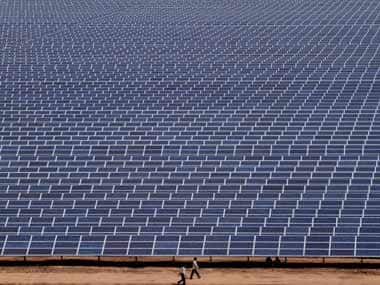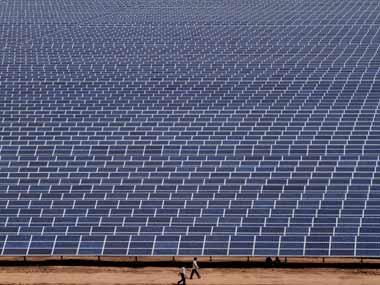By Neha Khator So the AAP government has left the town without saying a goodbye. After all the time and energy invested in the Aam Aadmi Party, Delhiites have been left behind without answers to how their basic, daily problems will be solved. The 50 percent subsidy on power will stop post-March—the period when Supreme Court’s interim relief to Delhiites ceases to exist and power utilities will be back to threaten again. The former Delhi Chief Minister has always claimed to take on the system and correct it but he has in his tenure very conveniently left a certain system intact in the national capital. [caption id=“attachment_1408845” align=“alignleft” width=“380”]  AP[/caption] Rewind to January. On December 31, the Delhi government announces a 50 percent power subsidy. Next day, CAG audit of discoms is sanctioned. On January 27, the two Reliance discoms — BSES Rajdhani and BSES Yamuna — threaten of 8-10 hours of power outages, claiming years’ of low electricity tariffs in the national capital have made the discoms financially unstable. Three days later, the Delhi electricity regulator, prodded by discoms, agrees to an exorbitant 6-8 percent hike in tariff to be effective immediately. Another three days later, NTPC makes the grand announcement; issuing a week’s deadline to BSES firms asking them to pay their dues of Rs 400 crore or else power lines will be cut. Since Delhi produces no power of its own, 70 percent of the city is immediately threatened by a blackout. Meanwhile, the Delhi government escalates the matter by threatening to cancel licenses of BSES and handing over Delhi’s entire power supply network to one company, Tata Power. (Strangely, Tata Power has no backlog of unpaid dues). The DERC and Electricity Tribunal, however, reject state government’s threat call as legally unsound. Tata Power, too, rejects the call to serve entire Delhi, saying it will only “focus on its own areas”. The Central government refuses to intervene, saying it’s a “state matter”. The Delhi government and power utilities, busy bickering over hurt egos, then drag the matter to twitter and court. On apex court’s intervention, Delhi is given an interim relief but only till summer when the discoms will be back to threaten again. (And we have no doubt they will. Since 2011, the BSES firms have thrice defaulted on their payments and NTPC has thrice threatened of a similar blackout. Each time, the Delhi government intervened by handing them over more cash and agreeing to a tariff hike.) The message, not lost in the medium and this familiar cycle of events, is however loud and clear. Delhiites must prepare themselves for hiked tariffs and “blackmails” if they want an uninterrupted power supply. Dear Delhi, pay up or there won’t be any light at the end of this tunnel. With no love or care, your power utilities. In 2011, the Delhi government had drafted a solar policy to promote rooftop, small-scale, solar power generation. The rationale behind the policy was to give the people an alternate source of power. The policy was, however, stonewalled by the discoms and unfavourable economics. The cost of a single-family 5kW system was then Rs 9 lakh. In June, 2013, with the price of solar touching new lows, the momentum picked up again. In July, the environment department prepared a detailed draft solar policy and sent it to the state power ministry and DERC for their approval by July-end. Meanwhile, in August, CERC, the apex electricity regulator, sent all states a model guideline on net-metering for solar energy. By November, however, the DERC, in an unexplained hurry, released a net-metering policy with “four restrictive clauses” that clearly blocked the sun from shining over Delhi. Among the objectionable clauses added was the 15 percent capacity addition limit, which means a house with a 10kW load will be allowed to install solar panels of only the sanctioned load limit. Since, solar works on 20% efficiency, a 10kW system will only provide 2kW power, making the house dependent on the discoms for 80 percent of its energy needs. The Aam Aadmi Party in its manifesto for Delhi elections had promised incentives and subsidies to promote solar energy; and set a target of meeting 20percent of Delhi’s electricity needs via solar energy by 2022. If every house in Delhi produces its own power, who would need the discoms, right? But the idea and Delhi’s solar policy are now gathering dust. As Delhi’s power minister Arvind Kejriwal ignored the draft solar energy policy even as Delhi’s Chief Secretary had in December directed the power department to act on it. With 350 days of uninterrupted sunshine, Delhi is solar energy’s paradise. According to a report issued by Greenpeace and Bridge to India last year, Delhi can produce 45 percent (2,557MW) of its peak electricity demand by tapping only 4.42 percent of the available rooftop area. Nearly half of this potential comes from residential buildings. As per the revised tariff rate, cost of coal-based power in Delhi above 400 units is now Rs 6.80/kWh plus an 8 percent additional surcharge on overall power bill. Price of solar, on the other hand, has dropped to Rs 6.49/kWh. On January 30, the electricity-starved state of Karnataka launched an aggressive rooftop solar policy that aims to generate 2,000MW through solar and make the state self-sufficient by 2016. As per the policy, households and enterprises that generate their own power can sell their excess electricity to the state grid to reap benefits of cash returns and slashed electricity bills. The other states of Tamil Nadu, Gujarat, Rajasthan and Madhya Pradesh, too, have similar policy. Something, however, stopped Delhi from going solar and independent. The time has come that Delhi starts building a new tunnel to find the light. The “existing power cartel” in the national capital must be dismantled if Delhiites have to free themselves from the mercy of those who occupy seats in the power corridors of the city. Each household must be empowered to decide when its lights are switched on or off. (Neha Khator is a writer on renewable energy and is associated with Greenpeace)
With 350 days of uninterrupted sunshine, Delhi is solar energy’s paradise.
Advertisement
End of Article
Written by FP Archives
see more


)

)
)
)
)
)
)
)
)



